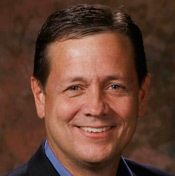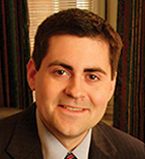By Bob Allen
Two Southern Baptist Convention leaders issued a statement May 6 asking the military to clarify what it means by making “proselytizing” a punishable offense.
 Kevin Ezell, head of the SBC North American Mission Board, which oversees chaplains, and Russell Moore, president-elect of the SBC Ethics and Religious Liberty Commission, joined in a 1,500-word statement of concern about a recent flurry of media reports raising questions about religious liberty in the U.S. military.
Kevin Ezell, head of the SBC North American Mission Board, which oversees chaplains, and Russell Moore, president-elect of the SBC Ethics and Religious Liberty Commission, joined in a 1,500-word statement of concern about a recent flurry of media reports raising questions about religious liberty in the U.S. military.
While some of the reports alleging hostility toward evangelical Christianity were mistaken or exaggerated, the Baptist leaders said others contained elements “indicative of a troubling lack of respect for true religious diversity in our military.”
They said such incidents give “a sense of plausibility” to recent claims that the Pentagon blocked access at military bases to the Southern Baptist Convention website due to “hostile content.” Military leaders said the concern was related to malware issues and not for ideological reasons.
 More recently, the Defense Department announced a ban on proselytizing – trying to get someone to change faiths – causing some conservative activists to claim that military chaplains could face court martial for sharing their faith.
More recently, the Defense Department announced a ban on proselytizing – trying to get someone to change faiths – causing some conservative activists to claim that military chaplains could face court martial for sharing their faith.
Ezell and Moore said they agree the military should not permit “unwelcome coercion of religious beliefs,” but such activity is already prohibited as harassment. With the introduction of an arbitrary distinction between “evangelizing” and “proselytizing,” they said, “we need reassurance that such would not restrict the free exercise of religion for our chaplains and military personnel.”
“After all, who defines what is proselytizing and what is evangelism?” the Baptist leaders asked. “What could seem to be a friendly conversation about spiritual matters to one service person could be perceived or deliberately mischaracterized as ‘proselytizing’ to the person on the receiving end. The fact that this has been raised at all in such a subjective fashion could have a chilling effect on service personnel sharing their faith at all.”
The duo said evangelical Christianity by definition believes all Christians are to share the gospel with others, and insisting on a “privatized, non-missional Christianity” should be out of bounds.
Ezell and Moore said they have seen “other incremental steps to marginalize and stigmatize the free exercise of religion,” such as “the ongoing struggles for evangelical Christian chaplains to pray in public settings as evangelical Christians, in the name of Jesus, which is the only way evangelical Christians believe we can come before God the Father.”
On May 3, Americans United for Separation of Church and State accused Religious Right forces of “crying wolf” by making false claims of anti-Christian discrimination.
“It is rather rare that Christians are actually discriminated against in the United States, a nice perk that comes from being in the majority,” AU communications associate Simon Brown noted in a blog. “The military may be looking to curb aggressive and inappropriate proselytizing, and rightfully so. But at this moment, there is no evidence to suggest that simply expressing one’s religious beliefs would lead to any sort of punishment.”
An earlier Americans United blog objected to a speech by David Barton, an evangelical Christian minister often criticized as a revisionist historian, at a National Day of Prayer event at Fort Leonard Wood in Missouri.
Ezell and Moore said they have “no interest in fomenting conspiracy theories or faux outrage” but they also “do not want to ignore potential threats to religious liberty.”
